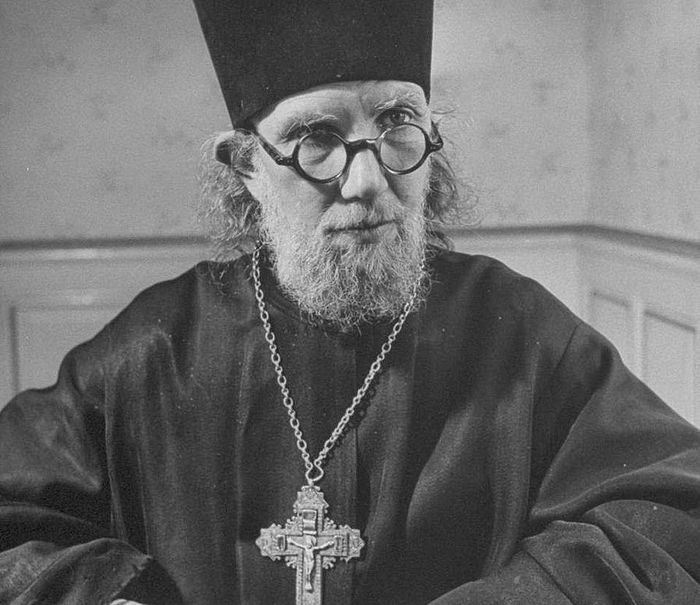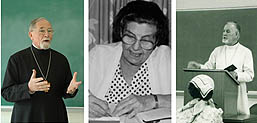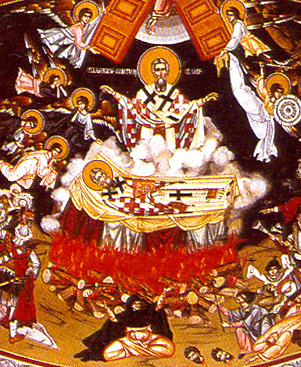Theology
Protodeacon R. Rakić: Patriarch Pavle was a man of the Spirit
15. November 2019 - 10:16Interview of Protodeacon Radomir Rakic given to Bulgarian Orthodox Agency
 Who is Patriarch Pavle? What is his ministry and will be canonized as a saint? The team of Dobrotoliubie talks with protodeakon Radomir Rakic, who personally knew the Serbian patriarch.
Who is Patriarch Pavle? What is his ministry and will be canonized as a saint? The team of Dobrotoliubie talks with protodeakon Radomir Rakic, who personally knew the Serbian patriarch.
Protodeacon Radomir Rakić was born on July 25, 1938. He graduated the Faculty of Theology in 1962 and the Faculty of Philology Department of English 1965 in Belgrade. He is a professor of English language and Literature. Meanwhile, he studied at the Theological Faculty in Bern (Switzerland). He speaks German, English, and Russian languages, from which he translates theological literature. Protodeacon Radomir Rakić is a professor at the Faculty of Theology of the Serbian Orthodox Church in Belgrade and a New Testament lecturer at the Theological seminary in Serbia (Foca) and an official translator of the Holy Synod in the Serbian Patriarchate.
On The History Of The Russian Orthodox Church In Korea
1. September 2019 - 21:06 An Open Letter Response to Metropolitan Ambrose of Korea
An Open Letter Response to Metropolitan Ambrose of Korea
This open letter of Metropolitan Sergei of Singapore and Southeast Asia of the Moscow Patriarchate to Metroplitan Ambrose of Korea of the Patriarchate of Constantinople was published in English on Orthodox World by request of Met. Sergei, as that site had published the original article from Met. Ambrose that Met. Sergei is responding to.
***
Open Letter of Metropolitan Sergei of Singapore and Southeast Asia,
Patriarchal Exarch of Southeast Asia,
to Metropolitan Ambrose of Korea (Patriarchate of Constantinople)
Your Eminence Metropolitan Ambrose,
I have long hesitated to respond to your interview published on The Orthodox World website on April 12: https://theorthodoxworld.com/exclusive-how-the-moscow-patriarchate-tramples-on-church-canons-and-undermines-orthodox-unity-in-korea/. However, the impression from my recent trip to Ukraine, to attend with a blessing of His Holiness Patriarch Kirill of Moscow and All Russia the celebrations on the occasion of the Name Day of His Beatitude Metropolitan Onuphry of Kiev and All Ukraine, led me to the decision to respond to your public statements.
International Conference on the Theological Legacy of Archpriest George Florovsky
13. August 2019 - 12:37 The Ecumenical Patriarchate is organizing an International Conference in Istanbul, titled “The theological legacy of Archpriest George Florovsky,” Sept. 1-3, 2019, on the 40-year anniversary of his passing. His Holiness Ecumenical Patriarch Bartholomew will inaugurate the International Conference which will be attended by hierarchs, clergy, distinguished university professors and theologians from universities from around the world.
The Ecumenical Patriarchate is organizing an International Conference in Istanbul, titled “The theological legacy of Archpriest George Florovsky,” Sept. 1-3, 2019, on the 40-year anniversary of his passing. His Holiness Ecumenical Patriarch Bartholomew will inaugurate the International Conference which will be attended by hierarchs, clergy, distinguished university professors and theologians from universities from around the world.
Greatmartyr and Healer Panteleimon
9. August 2019 - 10:52 The Great Martyr and Healer Panteleimon was born in the city of Nicomedia into the family of the illustrious pagan Eustorgius, and he was named Pantoleon.
The Great Martyr and Healer Panteleimon was born in the city of Nicomedia into the family of the illustrious pagan Eustorgius, and he was named Pantoleon.
His mother Saint Euboula (March 30) was a Christian. She wanted to raise her son in the Christian Faith, but she died when the future martyr was just a young child. His father sent Pantoleon to a pagan school, after which the young man studied medicine at Nicomedia under the renowned physician Euphrosynus. Pantoleon came to the attention of the emperor Maximian (284-305), who wished to appoint him as royal physician when he finished his schooling.
Historic recordings of Fr. Schmemann, Fr. Meyendorff, Sophie Koulomzin, others now available from SVOTS
23. July 2019 - 8:17
 “So many brilliant and renowned theologians and teachers have graced the campus of Saint Vladimir’s Orthodox Theological Seminary [SVOTS] over its 80-year history,” said Subdeacon Alexander Hatcher, SVOTS Director of Institutional and Advancement.
“So many brilliant and renowned theologians and teachers have graced the campus of Saint Vladimir’s Orthodox Theological Seminary [SVOTS] over its 80-year history,” said Subdeacon Alexander Hatcher, SVOTS Director of Institutional and Advancement.
“We are so pleased that now you can literally hear their voices in lectures and talks that had been in danger of being lost or forgotten.” Hundreds of old analog recordings of Father Alexander Schmemann, Father John Meyendorff, Father Thomas Hopko, Metropolitan Kallistos Ware, Sophie Koulomzin, Jaroslav Pelikan, and many, many others are now available—for the first time—in digital, online format you can listen to anywhere, anytime for free.” Cosponsored by SVOTS with assistance from the Virginia H. Farah Foundation, the recordings may be accessed by creating a free account (digi.svots.edu).
The Burning of the Relics of St Sava, Archbishop of Serbia
10. May 2019 - 11:12 The body of St Sava was buried at Milegeva. In the time of the Turkish occupation, the Serbian people gathered together round the relics of their saint, to seek support and healing.
The body of St Sava was buried at Milegeva. In the time of the Turkish occupation, the Serbian people gathered together round the relics of their saint, to seek support and healing.
Fearing that a rebellion against the Turks might be stirred up in that place, Sinan Pasha of Belgrade commanded that St Sava's relics be brought to Belgrade and burned there at Vra~ar.
.This was done on April 27th, 1594. But, with the burning of the saint's relics, the wicked Pasha did not burn the saint, who remains alive before the throne of God in heaven and in the hearts of his people on earth.

